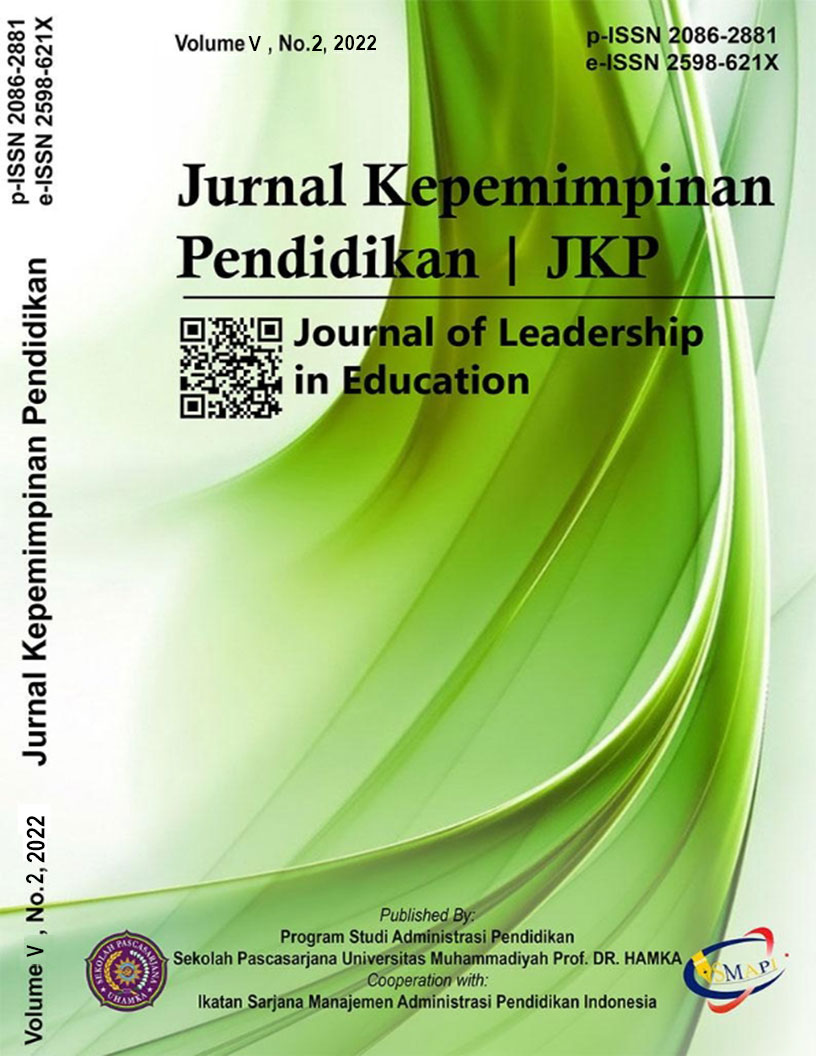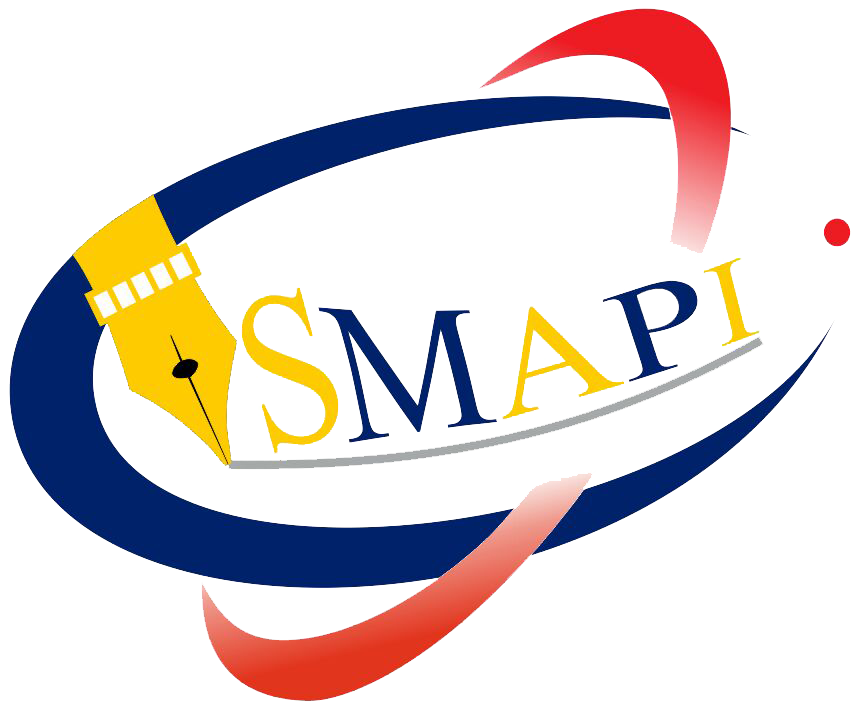RELATIONSHIP BETWEEN PRINCIPAL LEADERSHIP, WORK ENVIRONMENT, AND WORK DISCIPLINE AND TEACHER WORK ETHICS
DOI:
https://doi.org/10.22236/jkpuhamka.v5i2.11219Keywords:
teacher work ethic, leadership, work environment, work disciplineAbstract
This research aims to reveal the principal's leadership role, work environment, and work discipline on the work ethic of state high school teachers in Kalideres District. The method used in this study is a quantitative method with data collection using a questionnaire. The question- naire was tested on 30 respondents to test the validity of each statement item. The population in this study were the principals and teachers of public high schools in Kalideres District as many as 112 people. The research sample used simple random sampling. The number of samples taken was calculated using the Slovin formula with a significant level of 5%, namely 87 respondents. In analyzing the research data, normality test analysis, multicollinearity test, multiple lin- ear regression test, correlation test, and f test and t test were used. Based on the results of the study, the following values were obtained: (1) principal leadership (X1) with work ethic (Y) ry1 = 0,9711% ; (2) work environment (X2) with work ethic (Y) ry2 = 0,9774, (3) work discipline (X3) with work ethic (Y) ry3 = 0,9894%; and (4) principal leadership (X1), work environment (X2), and work discipline (X3) with work ethic (Y) ry123 = 0,9920. Based on the calculation results, it is known that together the principal's leadership, work environment, and work discipline have a positive direct relationship with the work ethic of public high school teachers in Kalideres District, West Jakarta.
Downloads
References
Adamy, M. (2016). Manajemen Sumber Daya Manusia. In unimal press (Vol. 106, Issue 12).
Adha, R. N., Qomariah, N., & Hafidzi, A. H. (2019). Pengaruh Motivasi Kerja, Lingkungan Kerja, Budaya Kerja Terhadap Kinerja Karyawan Dinas Sosial Kabupaten Jember. Jurnal Penelitian IPTEKS, 4(1), 47. https://doi.org/10.32528/ipteks.v4i1.2109
Agoes kamaroellah. (2014). Manajemen Pemerintahan Daerah. In Pustaka Radja. Pustaka Radja.
Ariani, D., Saputri, I. P., & Suhendar, I. A. (2020). Pengaruh Disiplin Kerja, Iklim Organisasi Dan Komitmen Organisasi Terhadap Produktivitas Kerja Guru. Jurnal Ilmu Manajemen Terapan, 1(3), 268–279. https://doi.org/10.31933/jimt.v1i3.110 arista, nadia, & Afriansyah, H. (2019). Administrasi Pendidikan. 13. https://doi.org/10.31227/osf.io/da4ym
B. Uno, P. D. H., Lamatenggo, D. N., & Petta Solong, D. N. (2014). TEORI Variabel Keguruan & Pengukurannya. In Sultan Amai Press. Sultan Amai Press.
Bafadal, I., Juharyanto, J., Nurabadi, A., & Gunawan, I. (2018). Principal Leadership and its Relationship with Student Learning Achievements: A Regression Analysis. January. https://doi.org/10.2991/coema- 18.2018.38
Bugdol, M. (2018). A different approach to work discipline: Models, manifestations and methods of behaviour modification. In A Different Approach to Work Discipline: Models, Manifestations and Methods of Behaviour Modification. https://doi.org/10.1007/978-3-319-74008- 9
Sugiyono. (2018). Metode Penelitian Kuantitatif. Bandung: Alfabeta.
Sofyan, S., Prasada, D., & Akbar, I. R. (2020). Pengaruh Motivasi, Lingkungan Kerja dan Kepuasan Kerja Terhadap Kinerja Guru SMP/MTs Muhammadiyah Cabang Sawangan. Jurnal Ilmu Komputer Dan Bisnis, 11(2a), 33–44. https://doi.org/10.47927/jikb.v11i2a.256
Sterrett, W., & Richardson, J. (2020). Supporting Professional Development through Digital Principal Leadership. Journal of Organizational & Educational Leadership, 5(2), 4.
Suciningrum, F., Rhamanda, A. Z., & Handayani, M. (2021). Pengaruh Motivasi Kerja Dan Disiplin Kerja Terhadap Kinerja Guru. SSRN Electronic Journal, 4, 2166–2172. https://doi.org/10.2139/ssrn.3864629

Downloads
Published
How to Cite
Issue
Section
License
Copyright (c) 2023 Andita RAHMAWATI

This work is licensed under a Creative Commons Attribution 4.0 International License.














